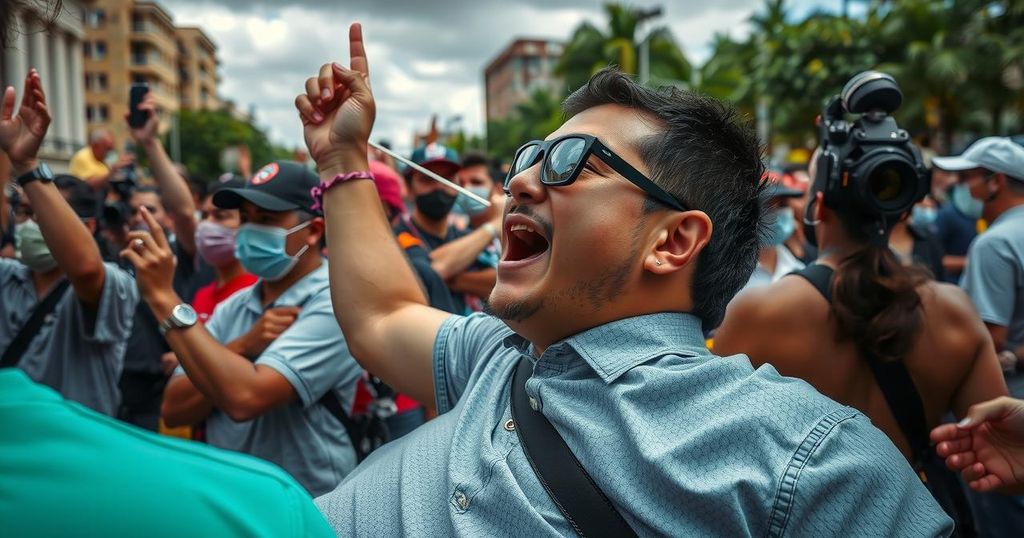Venezuela announced the release of 177 imprisoned election protesters, raising the total to 910 since the disputed July vote that led to mass protests and over 2,000 arrests. Concerns persist over human rights abuses, with reports of deaths in custody, as the country approaches Maduro’s swearing-in for a third term amidst international scrutiny and potential shifts in U.S. policy.
The Venezuelan government has reported the release of an additional 177 imprisoned election protesters, thus increasing the total number of released demonstrators to 910 since the controversial July 28 vote. This announcement, made by Attorney General Tarek Saab, follows a wave of protests and subsequent arrests where approximately 2,000 individuals were detained. Notably, human rights groups have raised concerns about the veracity of these claims, mentioning allegations of at least three deaths in custody amid a climate of political repression in the country.
The fallout from the disputed elections has been severe, with significant casualties reported, including at least 28 fatalities and numerous injuries during clashes with security forces. Additionally, the organization Foro Penal identified 1,877 political prisoners in Venezuela as reported earlier this month. President Nicolas Maduro’s administration has been under scrutiny, particularly after the Supreme Court confirmed the election results, despite widespread accusations that both the electoral council and judiciary are biased. The International Criminal Court has been actively monitoring the situation, revealing ongoing probes into past electoral violence, thereby reflecting growing international scrutiny.
As Turkey approaches the swearing-in ceremony of President Maduro for a third term, there are questions about the political motivations behind these recent releases, particularly in the context of the incoming U.S. administration led by President-elect Donald Trump. There are indications that these release measures could be aimed at appeasing U.S. relations as Maduro’s government has faced sanctions and criticism for its approach to political dissent and human rights violations, with many opposition leaders having fled the country.
The situation in Venezuela has escalated following controversial elections in July, where President Nicolas Maduro declared victory without providing substantial evidence. Political protests erupted, leading to mass arrests and allegations of human rights violations, including deaths in custody. Observers continue to scrutinize the integrity of the Venezuelan electoral process and the legitimacy of the judiciary. With an upcoming transfer of power in the U.S. government, international observers are closely monitoring the implications of these events on U.S.-Venezuela relations.
In summary, Venezuela’s release of 177 election protesters amid allegations of political repression and violence marks a significant development in the ongoing conflict surrounding the controversial elections. The government’s actions have raised eyebrows regarding their intentions, especially in light of international scrutiny and impending political changes in the U.S. Ultimately, the landscape for political dissent and the treatment of prisoners in Venezuela remains a crucial issue, warranting further observation.
Original Source: www.aljazeera.com






